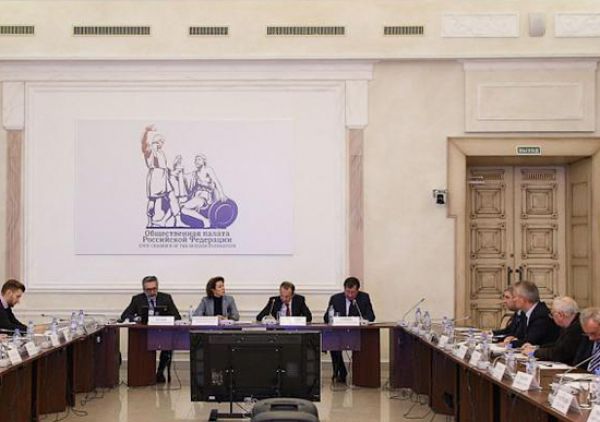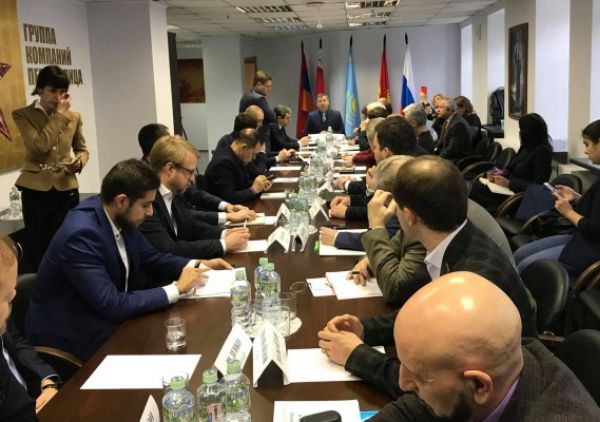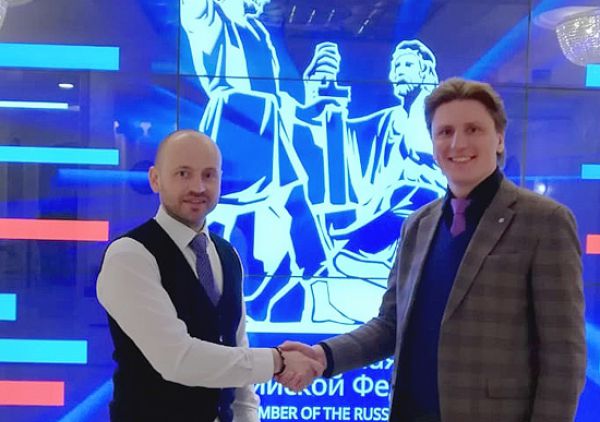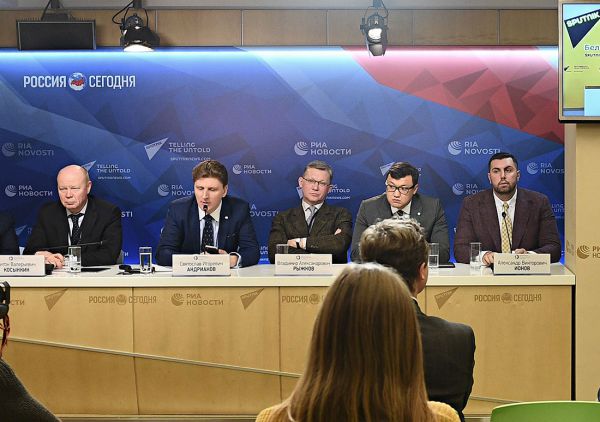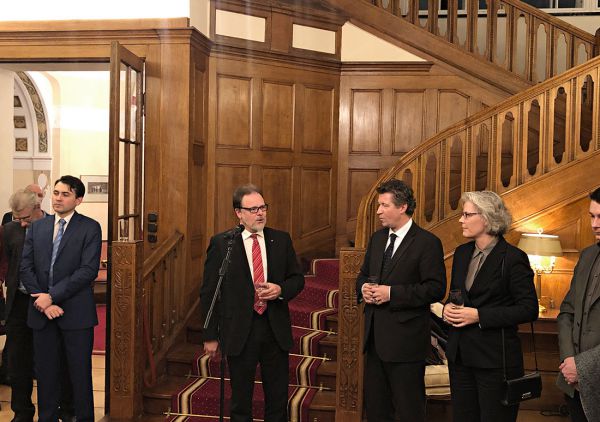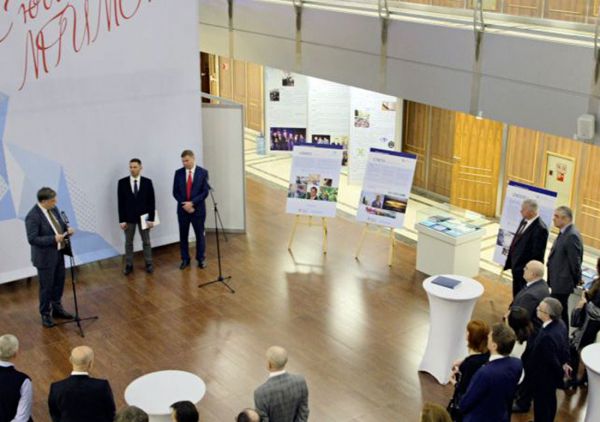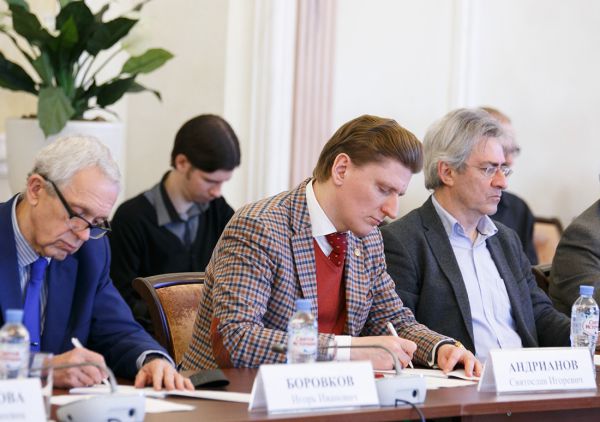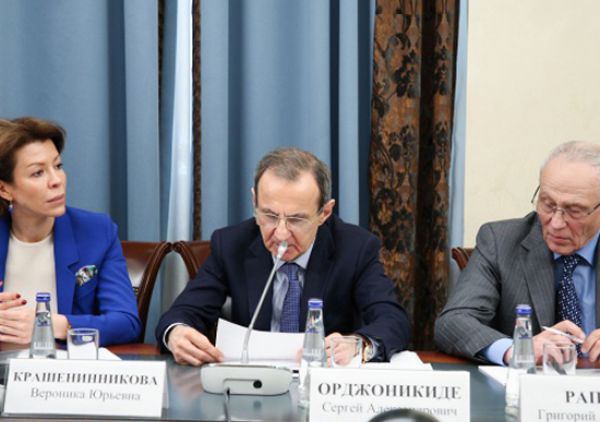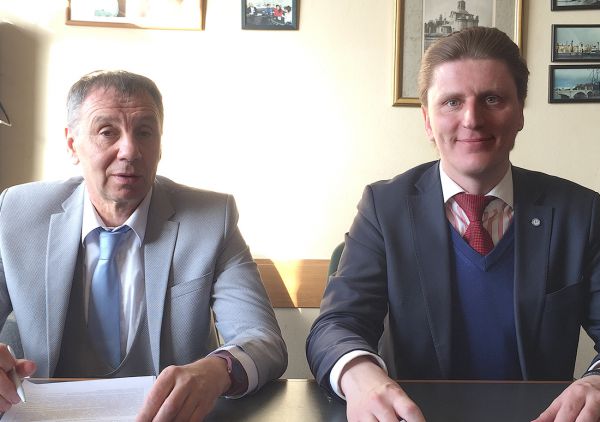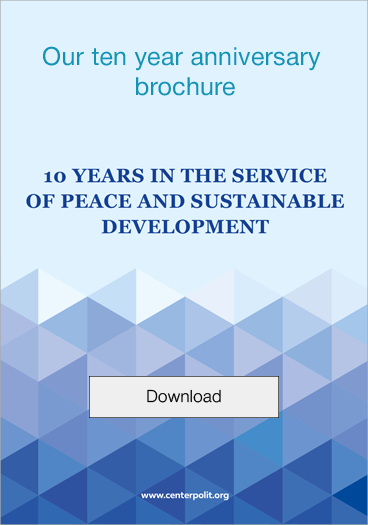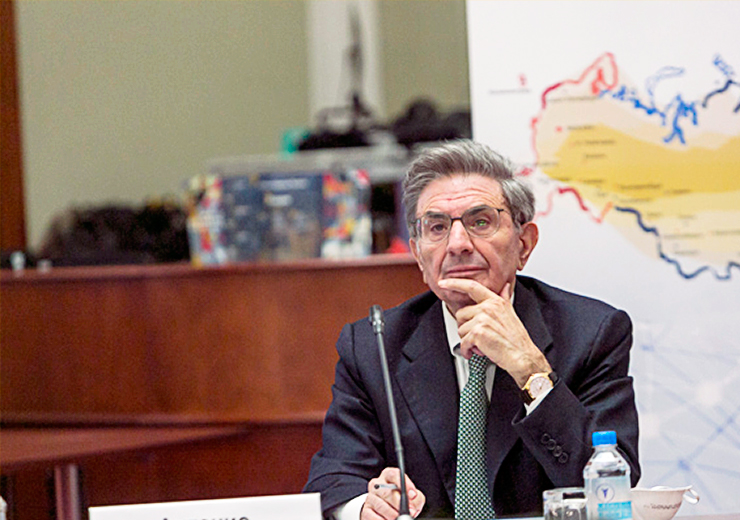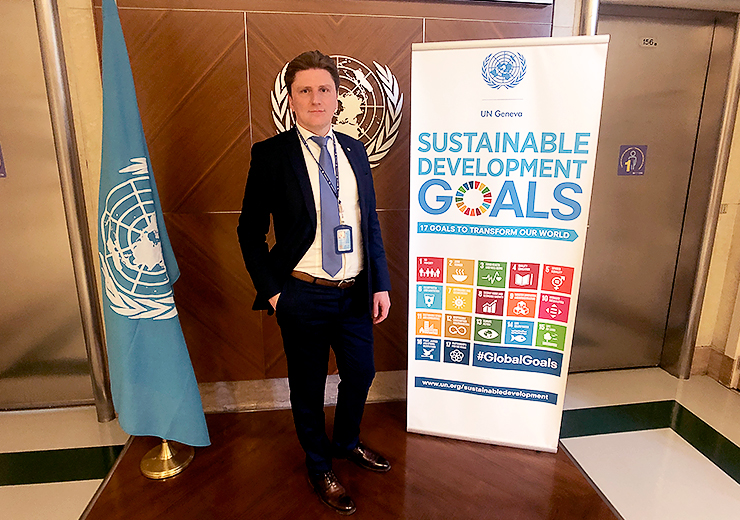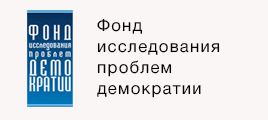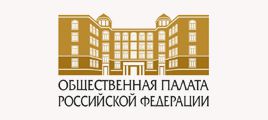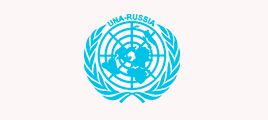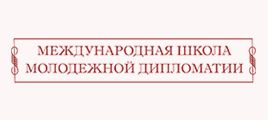Svyatoslav Andrianov on the Prospects of German-Russian Relations on Tsargrad-TV
June 15, 2019
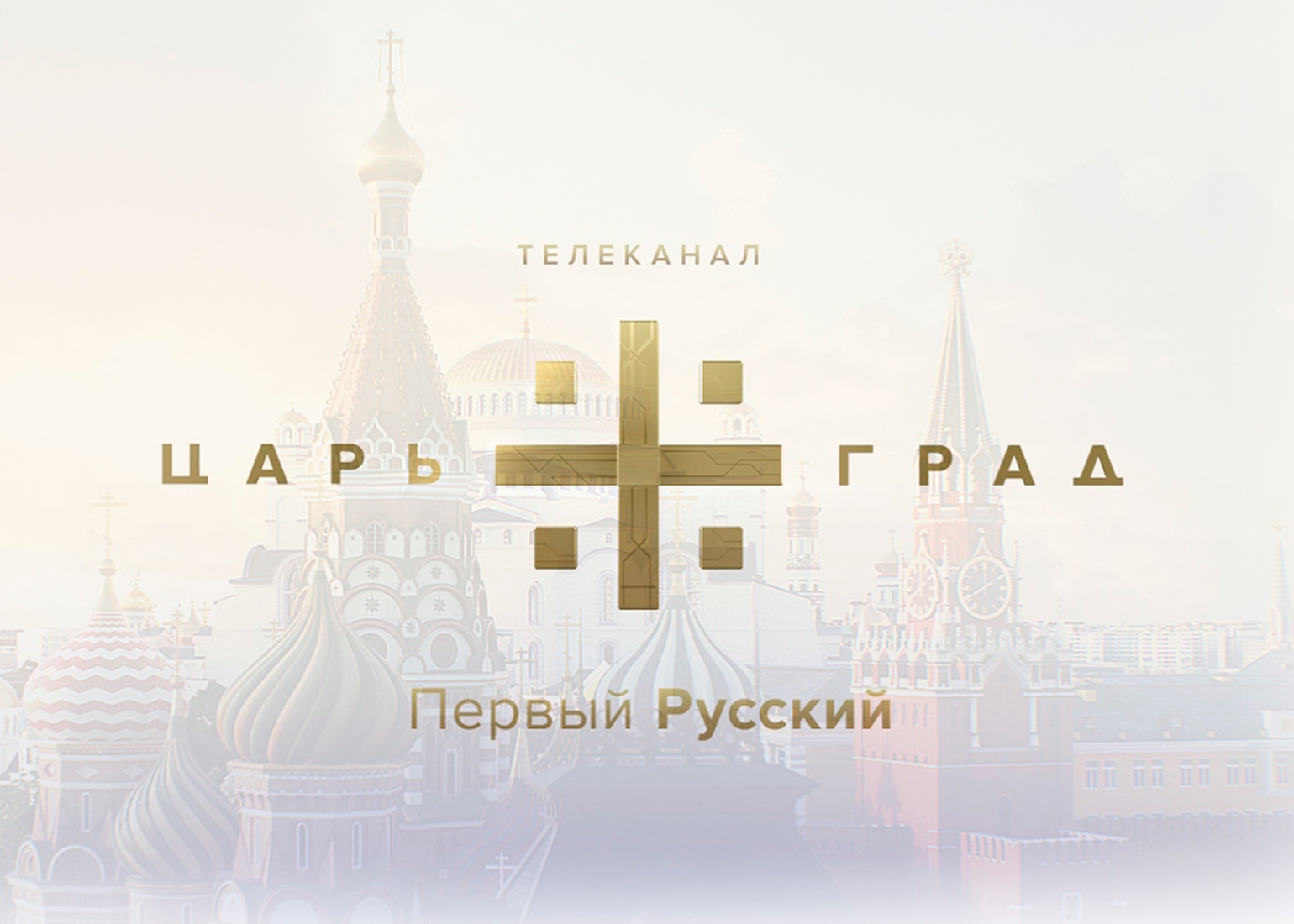
On 15 June 2019 the interview with the director of the Center for Political Analysis and Information Security Svyatoslav Andrianov was published on the website of Tsargrad-TV channel. The results of the European Parliament elections and the prospects for German-Russian relations were discussed. We offer you the text of the interview.
What prevents Russia and Germany from understanding each other?
Svyatoslav Andrianov, the director of the Center for Political Analysis and Information Security, spent the last ten days of May in Berlin. Political discourse before and after the elections to the European Parliament was watched with a wary eye. In the interview with Tsargrad-TV Svyatoslav shared his opinion on German-Russian relations after the elections.
Tsargrad: How do you assess the results of the elections to the European Parliament?
Svyatoslav Andrianov: When the key candidate for the presidency of the European Commission from conservatives, CDU member Martin Weber commented on the results of the European Parliament elections in Konrad Adenauer’s foundation, he addressed those present with the words: “The most wonderful news of today is that European democracy is alive!” At that moment, a smile did not leave his face. Mr. Weber’s optimism regarding European democracy comprised of three important facts of the recent election: high turnout, only a moderate loss of votes among conservatives and no dangerous results for populists and Eurosceptics that would risk parliament functioning - they have 108 mandates.
Ts.: How would you comment on the results of the European Parliament elections in Germany?
S.A.: In Germany Christian Democrats hold the majority in 10 federal states. The Green party won in Berlin, Hamburg and Schleswig-Holstein. In Bremen, despite a serious decline, the Socialists still remain the main political force. But they step on the toes of the Greens, pushing the Christian Democrats into third place. As far as the “Alternative for Germany”is concerned, its candidates won a majority only in two federal states - in Brandenburg and Saxony. My source from the ruling coalition in the Bundestag said that this was expected, because those two federal states were located on the territory of the former GDR and had recently been distinguished by a heightened mood of protest. It is associated with deep socio psychological problems: the inhabitants of these regions, despite Berlin's titanic efforts to reintegrate, continue to feel like second-class people.
Ts.: What is the impact of the elections held for the European Union as a whole?
S.A.: Some serious internal problems have developed in the EU, but I would not call them fatal. The election results for the EU were significantly better than the predictions of the Eurosceptics. The Christian Democrats have 179 mandates, the Socialists 153, the Liberals 105. These classic political forces in Europe received more than 56% of the vote, while the Greens still got about 10%. To make serious decisions, they will have to form coalitions with renewed vigor. The widespread optimism about the weakening of Europe that we meet in the media is premature. The EU continues to go through integration processes aimed at strengthening it, and the results of the elections to the European Parliament give us a clear signal that they will not be stopped in the next five years.
Ts.: What is the main intrigue of the recent elections?
S.A.: It is the answer to the question who will become the head of the European Commission. Depending on who assumes the role, we will see how classic political forces will be able to negotiate with those new forces. If Mr. Weber is elected chairman - this is one option, if they succumb to Macron's pressure - then a completely different combination, like the third option with a liberal candidate. Through this process, it will become clear how coalitions will be formed in the European Parliament.
Ts.: What is to be expected from the European Union in the medium term?
S.A.: Europe begins the establishing of a Pan-European army, which will not only significantly save the funds allocated for defense, but also generally improve the defense capability of the Union. Germany plays one of the leading roles in this process.
Ts.: Are there any prospects for improving political relations between Russia and Germany?
S.A.: In my opinion, prospects are extremely limited in the years to come. Berlin believes that the main task in the Russian direction is not to worsen relations. Both Russia and Germany are in dire need of a confidential dialogue, albeit not in public, but in an expert format. Such a dialogue should be substantive, deprived of mutual stereotypes, propaganda and clichés, which, unfortunately, exist in the information space of both states. Despite the bitter experience of World War II, Germany and Russia are very close historically and mentally. The closer and more trusting our relations are, the better they will affect our countries and Europe at large.
Ts.: What, in your opinion, prevents us from better understanding each other?
S.A.: High expectations and failure to accept a partner as it is. I wish Moscow finally learned how to perceive the Germans as they are; to cease thinking that this great nation, with a culture of deep historical and political reflection, which has gone through the hard lessons of World War II, with a wave of a magic wand or, even worse, for reasons of economic expediency, will suddenly abandon its values and ideals, which include democracy, freedom of speech and expression of will, as well as a strategy of multilateralism in foreign policy. I would also like for Berlin to understand that the thesis “the times of empires has passed” is now causing, and will have been causing, bewilderment and irritation in Moscow for a very long time. We consider it unfair and unacceptable to label us neo-imperialism only on the basis that Russia is not going to sacrifice its strategic interests in the international arena and does not a priori take the position of a "junior partner."
Ts.: What needs to be done to improve relations between Russia and Germany?
S.A.: Firstly, an adequate perception of Germany is required, taking into account its system of values and beliefs, as I mentioned above. I will only add that we in Russia need to stop perceiving Germany exclusively through the prism of Euro-Atlantic relations. The United States has been and remains a very important partner for the Germans, but Germany is not a vassal of America. And if Berlin disagrees with us on some point, then this does not need to be explained solely by the influence of Washington.
Secondly, it is necessary to expand and intensify humanitarian cooperation. In this time of crisis, when there is no possibility of close cooperation at the political level, we should deepen humanitarian interaction.
And thirdly, we need to expand and strengthen economic cooperation. It’s good to know that along with global economic projects between our countries, cooperation continues at the level of small and medium-sized businesses. In my opinion, our countries need to do everything possible to maintain this trend.
Read also
19.02.2021
On 19 February 2021 the 2nd joint seminar of the Russian Chamber of Commerce and Industry and Banca Intesa was held at the Russian CCI in Moscow.
8.02.2021
In the terms of preparation for the international conference Pandemic Economy: Strategy for Survival and Development, a delegation from the Center visited the European headquarters of the United Nations in Geneva.






